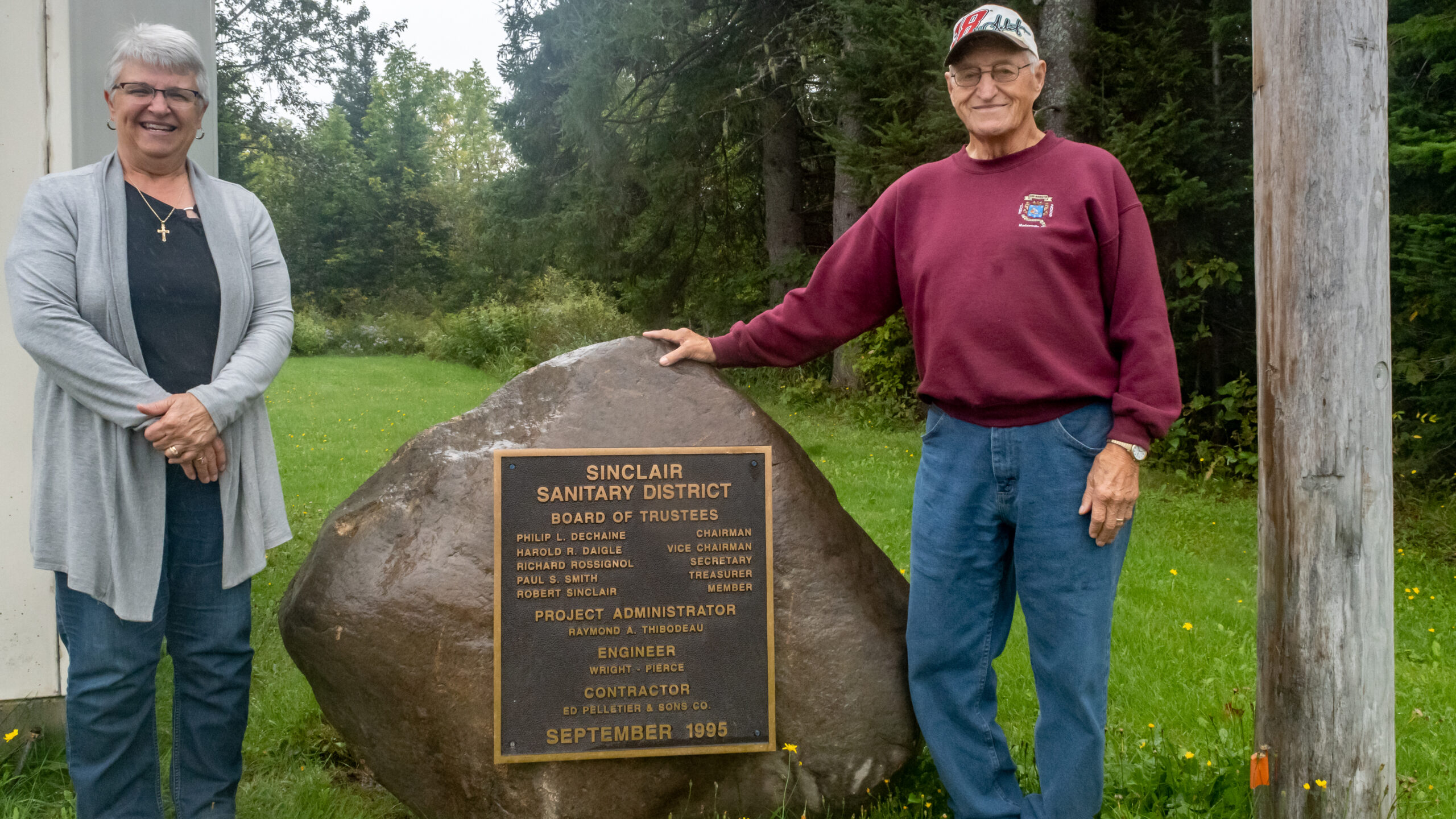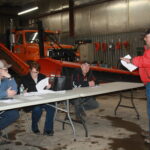
SINCLAIR, Maine — A 1995 plaque commemorating this small unorganized township’s sanitary district pioneers was recently rediscovered and is now on public display.
The Sinclair Sanitary District, which handles a majority of the township’s septic services and has been active for nearly three decades, was started to save Long Lake from becoming a sewage dump as more seasonal camps and permanent homes began to pop up along its shores.
Long Lake is part of the Fish River chain of lakes, which draws people from across North America for its fishing and outdoor recreation opportunities.
The plaque with the names of the district’s original Board of Trustees recently was found in the sanitary district office’s storage room. Martin Dionne, who serves as the district’s interim chairperson and public access officer, said he found the plaque in July while cleaning out a back room and wondered why it wasn’t being displayed.
Dionne and other district officials worked to get the plaque displayed to honor the people who helped form the organization that vastly improved its own community, plus those of others who lived on the connecting lakes. The plaque is now attached to a large rock outside near the main pump station along Route 162 in Sinclair.
“They started this,” Dionne said. “They were the shapers. They got this going. And it improved the Fish River chain. It improved people’s real estate property values, and it gave them a better quality health environment. And that’s continuing today.”
In the early 1990s, the district’s members were inspired to do something about many of the old septic systems in town, which were no longer working effectively.
Bob Sinclair, the only surviving member of the original Board of Trustees, said something needed to be done to protect the water.
“Everybody’s shoreline was dumping into the lake,” Sinclair said. “So the water flowing down through the area was very unsafe.”
He said the sanitary district now handles most of the shoreline.
Both Sinclair and his wife Denise are actively involved in their community, including its civic organizations such as the Knights of Columbus, the American Legion, their local church and food pantry, and also with the town’s senior citizens center.
Like many residents in the township, Sinclair owned a lakeside home and didn’t hesitate to join the board when he was asked in the early 1990s.
Sinclair, like the district’s founding and current members, understood how failing to act could lead to devastating consequences throughout the Fish River chain of lakes.
Sinclair and Dionne said the absence of a sanitary district would be devastating. Property values would suffer, and there would be little to no fishing opportunities.
Without the district, people’s dug wells could get fouled by the sewage in the lake water too.
“Some of the camps were taking drinking water from the lake, so that was not appetizing,” Sinclair said. “Even if it’s just water that you use for the shower.” Dionne pointed out that it’s a much healthier arrangement today with a sanitary district and a township sewer system.
Nearly 30 years later, the district’s work continues. The sanitary district will need to apply for grants to help with infrastructure updates that are overdue. But in order to qualify for these grants, sewer rates will increase by 33 percent for users starting next year.
The town will also hold an election for the board on Oct. 18. Two incumbents are running. Dionne said he was confident that the district’s current members are continuing the founders’ mission to serve as environmental stewards.
“The present SSD Board of Trustees are well positioned to continue the important work of the district,” he said. “They are a talented, caring group of citizens with a part-time staff of four.”







